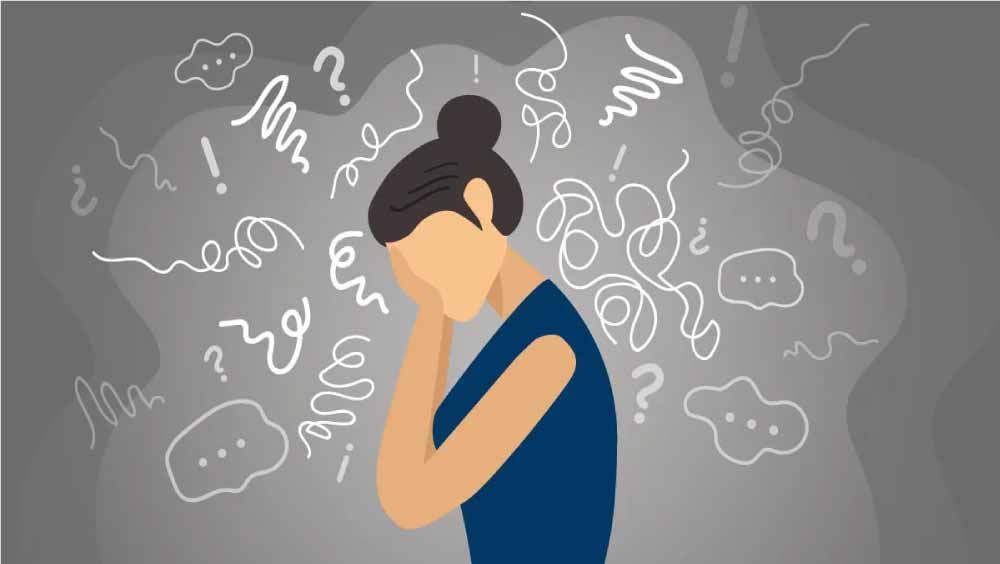Definition:
Irritable bowel syndrome or irritable bowel syndrome is a disorder of the large intestine that manifests with repeated abdominal pain. And that is accompanied by diarrhea or constipation intermittently. It is benign in nature and does not progress to cancer.
Epidemiology:
IBS (Irritable Bowel) is more common in women. Its prevalence is 10 to 15% and is common in young people.
Causes:
The cause is not yet clear, but emotional factors play a fundamental role. Ingestion of irritating or fatty foods and intestinal infections can trigger symptoms.
Clinical manifestations:
Abdominal pain is located in the right or left abdominal region and/or in the lower abdomen. There may be changes in defecatory habit and stool consistency. Intestinal gas and urgency when defecating without being able to evacuate. Diarrhea or constipation may occur. Diarrhea can be morning or night, but also, after eating food. In most cases it is accompanied by headache. Non-gastrointestinal accompanying symptoms, such as fatigue, back pain, fibromyalgia, nocturia (getting up to urinate at night), dyspareunia (pain when having sex) in women, and insomnia (difficulty falling asleep) also occur.
Diseases that accompany Irritable Bowel Syndrome (Irritable Bowel):
- Lactose intolerance.
- Celiac disease.
- Inflammatory bowel disease (ulcerative colitis, Crohn’s disease).
- Tropical sprue.
- Endometriosis.
- Pelvic inflammatory disease.
- Diverticulitis.
- Ovarian cancer.
- Colon carcinoma.
Diagnosis:
Irritable bowel syndrome or irritable bowel syndrome is based on the patient’s medical history. Symptoms can vary from person to person, most have mild symptoms. The pattern of pain and accompanying symptoms such as abdominal distension, bowel sounds (increase in the frequency and intensity of bowel sounds), flatulence (gas), changes in defecation (mucus in the stool), defecatory urgency, incomplete evacuation and diarrhea of more than 2 weeks, can guide us in the diagnosis.
Psychological conditions:
Anxiety, depression, somatization (set of symptoms that cannot be explained medically), hypochondria (excessive worry of suffering from some disease). Fears related to symptoms and catastrophism (tendency to predict catastrophes) are also companions in some cases.
Physical examination: necessary to rule out other pathologies.
Cabinet examinations: barium enema and colonoscopy are indicated to rule out other pathologies of the colon.
Differential diagnosis of irritable bowel syndrome:
- Malabsorption of bile acids.
- Celiac disease.
- Lactose intolerance.
- Inflammatory bowel disease (Crohn’s disease, ulcerative colitis).
- Colorectal carcinoma.
- Acute or chronic diarrhea, due to protozoa or bacteria.
- Bacterial overgrowth of the small intestine.
- Tropical sprue.
- Diverticulitis.
- Endometriosis.
- Pelvic inflammatory disease.
- Ovarian cancer.
- Colitis associated with anti-inflammatories.
- Irritable bowel syndrome (IBS) is common in other painful chronic disorders:
- Fibromyalgia in 20-50% of patients with irritable bowel syndrome.
- Non-ulcer dyspepsia.
- Chronic pelvic pain in 50%.
- Present in 51% of patients with chronic fatigue syndrome.
- Mandibular temporo joint disorder 64%.
Treatment:
Diet: fibers and probiotics.
Antispasmodics for pain: otylonium bromide, hyoscine, pinaverium, dicyclomine and mebeverine, lysine propinoxate, peppermint oil.
Laxatives for constipation: lubiprostone, linaclotide, lactulose, bisacolido and psyllium.
Antidiarrheals for diarrhea: rifaximin, eluxadoline, loperamide and diphenoxylate.
Antidepressants for abdominal pain, diarrhea and bloating: amitriptyline, paroxetine and citalopram.
For bloating and bloating: probiotics such as bifidobacterium infantis 35624 and rifaximin.
Prognosis:
In most patients with irritable bowel syndrome (IBS), symptoms are likely to persist but not worsen. Symptoms deteriorate to a lesser extent and some patients recover completely.
Factors that can negatively affect the prognosis:
- Avoidant behavior
- Anxiety
- Long history of symptoms
- Chronic stress
- Psychiatric comorbidity (presence of two or more diseases at the same time).
Follow-up to avoid irritable bowel syndrome:
Care should be taken that no eating disorders appear.
Good lifestyle habits to avoid irritable bowel syndrome:
Neat and balanced lifestyle.
Tobacco and alcohol use should be avoided.
There are no forbidden foods. Each person must identify which foods bother them and reduce or eliminate them. In conclusion, foods such as spices, caffeine, spicy, fats, gas formers or highly spicy foods should be avoided. It is advisable to drink water and eat fruits and vegetables, without overdoing it. It is not advisable to eliminate foods such as lactose or gluten, unless you are intolerant. Feeding should be individualized as much as possible.
It is important to take time to defecate. Go whenever you have desire, do not endure. Go to the bathroom quietly, take time, although not too much and, if possible, in a relaxed atmosphere and that is at a fixed time every day.
It is advisable to perform 30 to 40 minutes of physical activity depending on the condition of each person.
It is beneficial to avoid stressful situations.
Dietary recommendations to avoid irritable bowel syndrome:
- Make small, frequent meals.
- Eat at a relaxed pace and at regular times.
- Avoid constipation, but increase the fiber content and proportionally the content of non-carbonated liquids in the diet progressively.
- Get regular physical exercise.
- Do relaxing and social activities.
- Identify sensitivities to different foods and exclude only those that you do not tolerate.
- Set times to eat and go to evacuate.
- Increase the consumption of soluble fiber (in the form of gums, pectins and mucilage). It can be done with the help of foods such as quince candy or apple, although it is also recommended to take daily food supplements of this type of fiber.
- Avoid high-fat foods, citrus fruits and spinach.
- Eliminate the consumption of sorbitol (a sweetener), spicy foods or spices, gas (in drinks), coffee and tea.
- Eliminate lactose if it is not tolerated.
- Drink at least two liters of water a day. It is very important to ensure proper hydration when there is diarrhea.
- Diet low in fermentable fructo-oligo-di- and monosaccharides and polyol sugars (FODMAP).
Foods to avoid irritable bowel syndrome:
In the case of intolerance: Dairy products containing lactose, cottage cheese or ricotta.
Sausages, pâtés, fatty pork, lamb, fatty and smoked meat, organ meats, bacon, sausages, whole grains and their derivatives, whole legumes, very fibrous and flatulent vegetables (cabbages, artichokes, peppers, asparagus, cucumber, radishes, eggplant, onion, leek, radishes, celery, etc.
Flatulent fruits such as melon and fig, citrus fruits (orange), fruit juices.
Mayonnaise, margarine, butter, nuts, pastries and pastries, whole-grain biscuits, alcoholic beverages such as beer, soft drinks, as well as stimulant drinks.
Avoid irritating and spicy spices.
Reduce foods rich in FODPA: apple, pear, peach, mango, watermelon, canned fruit in its juice, dried fruit, fruit juices, honey, corn syrup rich in fructose, cow’s milk, sheep’s milk, goat’s milk, ice cream, soft cheeses (e.g. ricotta and cottage cheese), asparagus, artichokes, broccoli beetroot, Brussels sprouts, garlic, cabbage, leek, fennel, onion, peas, sorbitol, mannitol, malitol, xylitol, cherries, nectarine, plum, prune, watermelon.


